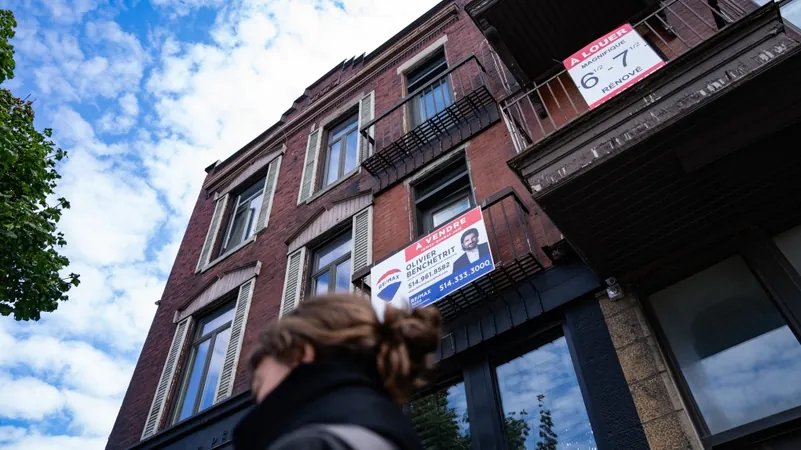
Will Montreal Rents Soar to $4,325 for a 2-Bedroom in Just 8 Years? Shocking Study Reveals Potential Crisis!
2024-10-03
Overview of the Study
A groundbreaking study from Concordia University in Montreal raises alarm bells about the future of rental markets across Canada. If current trends and policies remain unchanged, the cost of renting a two-bedroom apartment in Montreal could skyrocket to a staggering $4,325 per month within the next eight years. Meanwhile, renters in Toronto may face a monthly bill of $5,600, and those in Vancouver could be shelling out around $7,750.
Using advanced artificial intelligence, researchers analyzed data from the Canada Mortgage and Housing Corporation (CMHC), Statistics Canada, as well as immigration and population projections from the Canadian government. This study’s alarming predictions come as the average two-bedroom rent in Montreal currently stands at $2,276, reflecting a 1.8% increase from last year.
Lead researcher Erkan Yonder noted, 'Our analysis looks at historical trends and government projections to foresee future conditions. Without significant changes to immigration and real estate policies, we will face a crisis.' This revelation adds urgency to the ongoing discussion about housing in Canada, particularly in major urban areas.
In a report by Rentals.ca, it was revealed that average two-bedroom rents are currently $3,632 in Vancouver and $3,158 in Toronto—both markets experiencing significant year-over-year declines of 6.4% and 7.5%, respectively. However, the overall Canadian average has seen an uptick, with rents reaching $2,278, a 4.3% increase, and a rise to $2,168 in Quebec.
The Supply-Demand Dilemma
Yonder emphasized that the crux of the issue lies in the stark imbalance between housing supply and soaring demand. To combat this impending crisis, local governments must urgently increase construction efforts in areas with high housing demands. 'Currently, we are not building nearly enough homes to keep pace with what’s needed. We would need to increase our annual building rates sixfold to begin addressing affordability,' he remarked.
This problem isn't unique to Canada. Countries that attract immigrants often face similar housing shortages due to inadequate stock. As Yonder pointed out, 'We create demand, but we fail to meet that demand with sufficient supply.'
Despite a reported 4% increase in housing starts this year, the CMHC warns that this growth falls significantly short of what is needed to cater to Canada’s growing population, particularly in light of a concerning 30,000 decrease in housing starts in 2023 largely attributed to rising interest rates.
Addressing Local Challenges
Yonder also highlighted the necessity of tackling this issue from a local perspective rather than a national one. Different regions experience varying levels of demand. For instance, areas like Metro Vancouver are exceedingly popular, while others lag behind in desirability.
Local governments must craft policies that not only make lower-demand regions more appealing but also collaborate with developers to funnel populations into areas with available housing. 'Targeted efforts to attract businesses to specific locations can help facilitate the movement of newcomers into those areas,' Yonder suggested, emphasizing a proactive approach to the looming housing crisis.
As the rental landscape shifts, Canadians may soon be forced to confront a reality where affordability becomes a distant dream. Is Canada prepared to face this imminent challenge? Only time will tell if decisive action will be taken in the coming years.









 Brasil (PT)
Brasil (PT)
 Canada (EN)
Canada (EN)
 Chile (ES)
Chile (ES)
 España (ES)
España (ES)
 France (FR)
France (FR)
 Hong Kong (EN)
Hong Kong (EN)
 Italia (IT)
Italia (IT)
 日本 (JA)
日本 (JA)
 Magyarország (HU)
Magyarország (HU)
 Norge (NO)
Norge (NO)
 Polska (PL)
Polska (PL)
 Schweiz (DE)
Schweiz (DE)
 Singapore (EN)
Singapore (EN)
 Sverige (SV)
Sverige (SV)
 Suomi (FI)
Suomi (FI)
 Türkiye (TR)
Türkiye (TR)